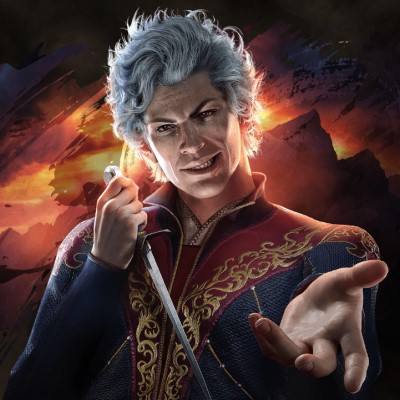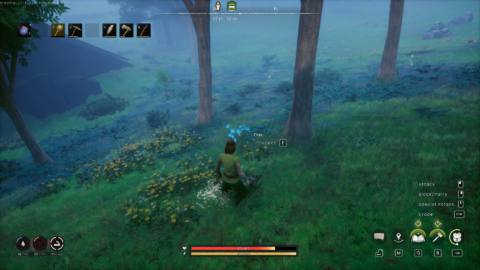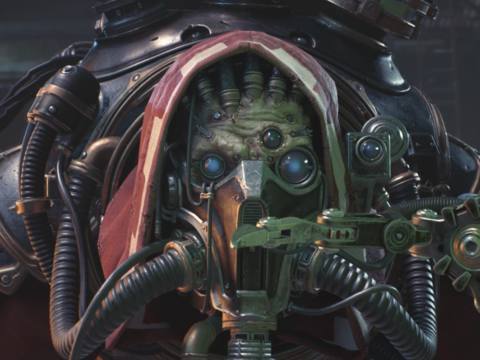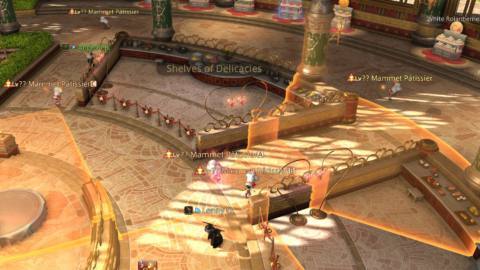It's impossible to talk about new studio Bit Reactor without talking about XCOM. 15 members of the team (“about a third of our studio”) are former Firaxis developers and veterans of the series. That includes co-founder/CEO/creative director Greg Foertsch, and speaking to him and lead animator Hector Antunez, their enduring passion for the XCOM games shines through. So it's not surprising to discover that the Star Wars project they've been working on is going to be a tactical strategy game, drawing on all that experience for what they hope will be a step forward for the genre.
“I think [tactical strategy], it's a space that honestly has the most room of any genre to grow, through immersion and storytelling and visual presentation and pacing,” says Foertsch. “It's got a lot of space to innovate in. And so for us, those are kind of the things we focus on. And I think we've made a few games in the past that have displayed those things that are just like tips of icebergs in a lot of cases.”
He's not afraid to speak in pretty ambitious terms about the game—bold, perhaps, for a project that doesn't even have an announced title yet. But a bit of boldness is earned here. Those 15 XCOM veterans are present across every department, mostly in lead positions. Antunez started at Firaxis with XCOM: Enemy Unknown, and had a hand in each of the games in the series—though his role is lead animator, Bit Reactor's collaborative style means he's also contributing to the game's design and other elements, using that experience. Foertsch, meanwhile, was at Firaxis from the very beginning, right through to Midnight Suns.
Never tell me the odds

So in theory the right people are in place here—but how do you push the genre forward? Though the pair aren't able to talk in specifics yet about the game, they give me a sense of their vision, and it seems to be a more cinematic experience, but without skimping on strategy.
“I think Hector and I have a little bit of an axe to grind in general with the genre. There's this idea that depth costs you elegance,” says Foertsch. “Like, oh, if it looks prettier, if it's immersive, if it's got a good story, well, something else got compromised. I say no, not really. I think that you can have both.
“I don't think that complexity equals depth. And I think that that's really what we're focused on. Differentiating that nuance between those two things.”
The other key element is accessibility—making sure this is strategy that can appeal outside of the already committed audience, again without diminishing the tactical depth.
When we’re talking about growing the genre and expanding it, a big thing for me is going to be getting it in more people’s hands.
Hector Antunez, Lead Animator
“There's tons that we want to do with the game that are like building on things that we've been able to do in the past,” says Antunez. “When we're talking about growing the genre and expanding it, a big thing for me is going to be getting it in more people's hands. It bums me out that more people don't play these types of games, and when we dig into that, we get into hearing these preconceived notions.
“So every time we've made a game, we've focused on, what are going to be inviting things, for others that know nothing about this?” Because everybody that does play [this genre] does end up finding something new, something fresh, right? They may be used to more standard fare, shooters, all these games that are awesome… but I'm just like, 'You have no idea what you're missing!' There's this genre with this very specific type of gameplay, with new ways to experience stories and characters.”
Chewbacca Squad
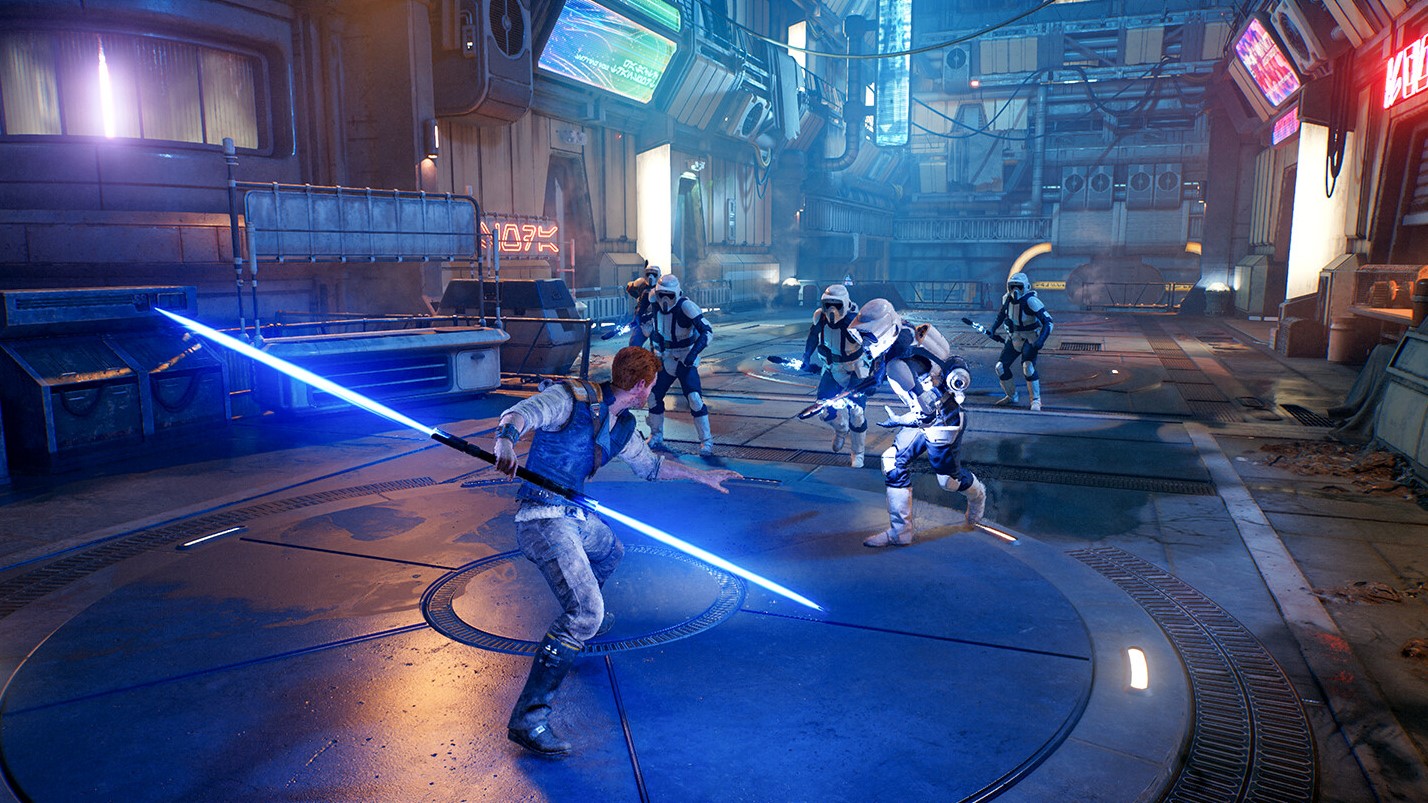
Those goals perhaps go some way to explaining the game's unusual publishing situation. It's being published by Respawn—the studio behind Titanfall, which is itself owned by EA. It's an odd situation for any studio for its publisher to be another studio at a larger publisher, but particularly you wouldn't associate Respawn with complex strategy experiences. But it does have expertise in cinematic, broad appeal Star Wars games with surprising depths, as seen in its Jedi games, Fallen Order and Survivor.
“Respawn really treats us like an internal team. They've been really good to us,” says Foertsch. “They encourage collaboration and communication between teams. And so they've been just flat out the best experience I've ever had in publishing.”
They trust us to make the kind of game we know how to make.
Greg Foertsch, CEO and Creative Director
Respawn is providing major support for the otherwise independent studio, and has also facilitated a close working relationship with LucasFilm. But for those worried about what influence it (or EA) might have on the game's design, Foertsch is quick to say that Respawn is hands-off where it counts.
“They trust us to make the kind of game we know how to make,” he says.
“Yeah, trust is that big word,” says Antunez. “They trust that we're building a team that is experts in this genre. And they complement what we're doing, when we say we want to elevate what we're doing. That's where they come in, is helping us reach our own goals.”
XWING

As a player, I hold those two XCOM games in reverence—I even mourned the series' apparent death at Firaxis recently. In fact, that was part of what prompted Bit Reactor to reach out about an interview. “Your last article, about Jake, really made us sad, because we're not in mourning,” says Foertsch. “The future of this genre is bright.” For him, Antunez, and the other former Firaxis developers on the team, XCOM isn't sacred and unassailable—it's a past achievement they hope to better in the future.
I'm not sure I'll be taking off my black veil just yet—ultimately a good pitch is the easy part, and I get the impression there's still a lot of work to be done yet before we'll even get to see footage of this game. But what's most reassuring about this chat is discovering how genuinely devoted this group of developers still is to this genre. Whether their ambitions will come fully to fruition, I don't yet know, but what I can tell you is how real their enthusiasm is.
“Don't worry, some of us are going to make tactical strategy games for the rest of our careers!” says Antunez. “Some of us are never going to stop. There's a whole tribe here that are like, 'This is what we love, this is what we want to make'. I mean it, I don't think I would ever want to make a different type of game.”

